SeaCoast Roofing & Exteriors
Doors & Windows
Hurricanes, heavy rains, and heat waves are all too familiar for Florida residents. Under these extreme weather conditions, even high-quality roofs can become damaged. As a homeowner, the last thing you want is the interior of your home exposed to the outdoor elements.
Here at Roman Roofing, we have the expertise to service all types of roofs and perform a wide variety of repairs. Between water leaks, broken tiling, and wind damage, we’ve seen and fixed it all. Don’t leave your home vulnerable, and contact us today!
Doors and Windows are Vital
You may be glad to hear that choosing the windows and doors that will be installed into your home does not have to be a daunting experience!
Even through there are tons of different types, styles and brands, our Project Manager can help you navigate through this important step. Below is some information on the different types of doors and windows available to you, and we can install any style, type of brand that you like.
If you are looking for a windows, doors contractor near me in Fort Myers, Cape Coral, Naples, Bonita Springs, Lehigh or even as far as Punta Gorda, please don't hesitate to schedule a free estimate with you. We look forward to an opportunity to earn your business.
Doors
Good Entry Doors are Crucial
Entry doors must be tough enough to withstand wind, rain, scorching sun, and would-be intruders, yet handsome enough to make a good first impression. Unfortunately, meeting those needs is a tall order for many front doors. Most older ones are made of wood or wood veneer, both of which warp, crack, and delaminate after years of exposure to the elements. Metal doors don’t last forever, either—the surface on some older steel doors can peel.
Whether that describes your front door or you just want to trade a solid door for one with glass panels that offer more light, you’ll find plenty of options available. There are new wood doors available that resist the elements better than earlier versions, as well as metal and fiberglass ones that look like wood but provide greater security and often cost less.
Sometimes replacing a door means simply exchanging one door, called a slab or blank, for another. But in some cases you’ll have to rip out and replace the old door framing, which includes the door jambs and threshold — especially if these wood members have begun to rot or have been damaged by a storm/flood.
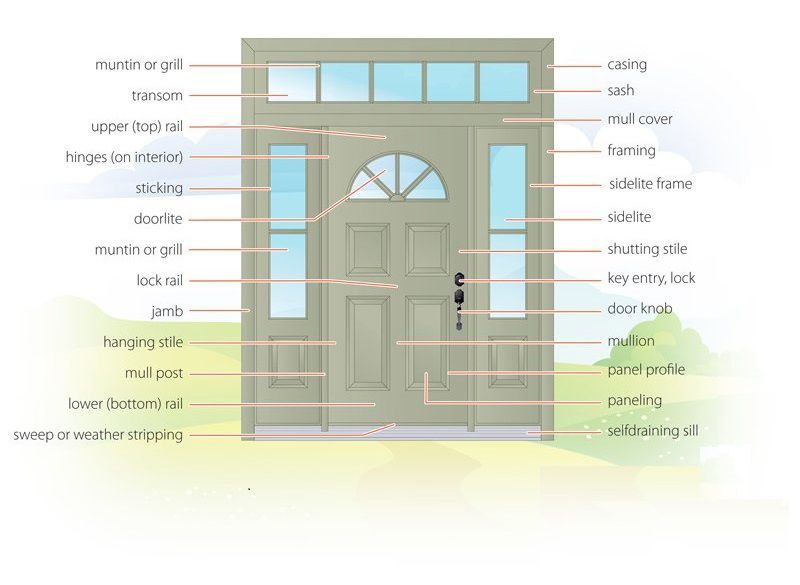
We can also install back doors, patio doors, and sliders. One of our Project Managers will keenly listen to what you would like, and help you navigate through the entire process.
Which Material is Right for You?
Wood Door
Wood doors are the most common. Versatility and beauty are their strong suit. Natural-finish stock and custom wood doors come in oak, cherry, walnut, mahogany, maple, fir, and pine. You’ll also find paint-grade doors in several softwood varieties, such as pine and western hemlock.
Many stock wood doors are a sandwich of wood-veneer skins over an engineered-wood core. This configuration minimizes the expansion and contraction that cause warping. At about $200-$250, they’re a low-cost alternative to solid-wood doors. If you've chosen wood, we recommend furniture-grade veneers at least 1/16 inch thick, anything thinner damages too easily.
Companies such as Lamson-Taylor, Pella, and Simpson discourage bowing and warping by laminating two pieces of wood to create the stiles and rails. Split construction is also used for door panels, but they have an insulation core. The result is a wood door with an insulation value of about R-5 compared with R-2 for conventional versions. These doors cost about $300 to $500.
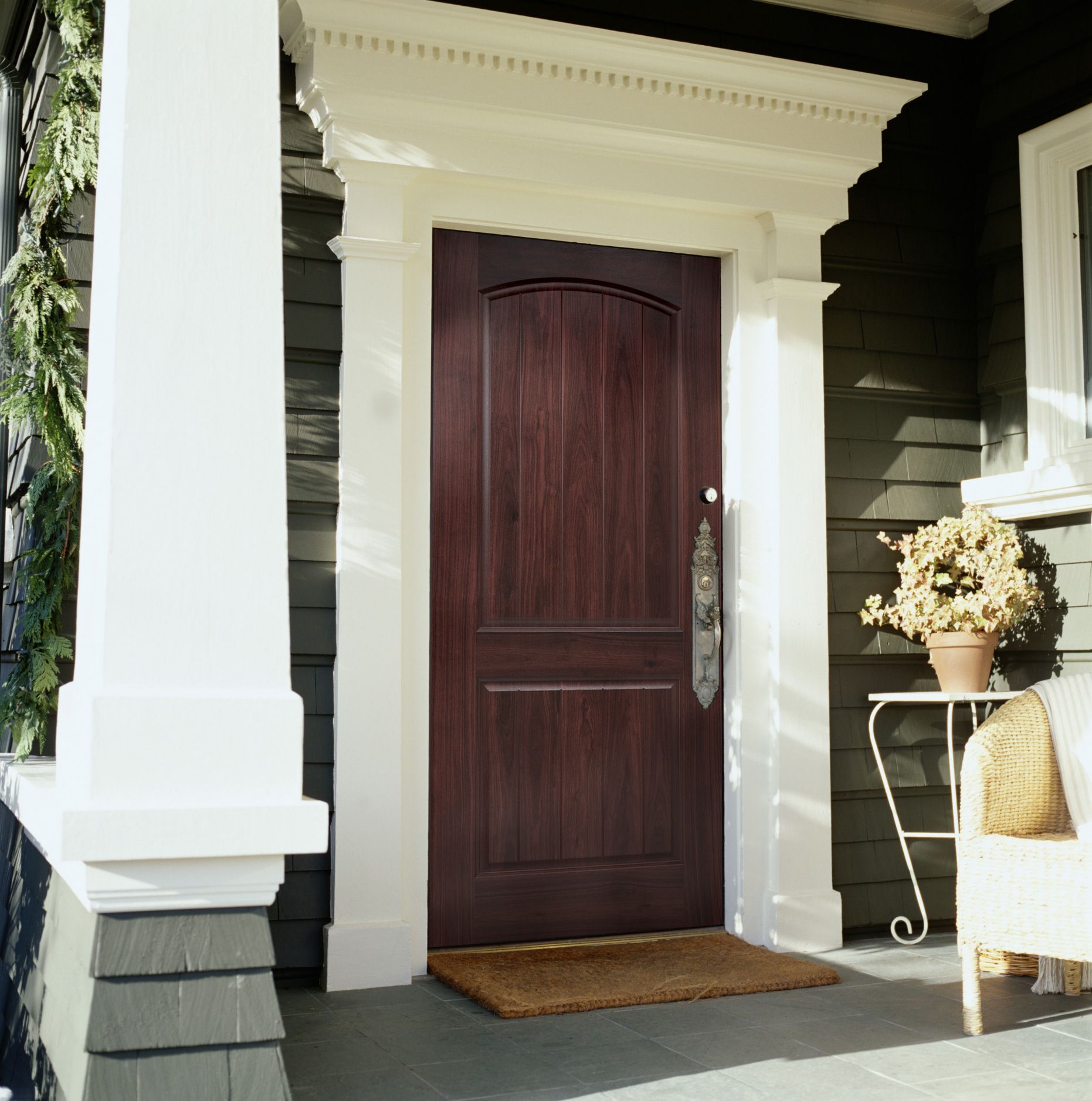
Steel Door
A steel door is your best bet if security and durability are top priorities. Steel units are stronger than wood or fiberglass doors, and they won’t crack or warp. Any dents or dings on these doors can be pulled and puttied with an auto-body repair kit.
Steel doors also cost the least! Prices start at about $185 for a 3-foot-wide x 6-foot 8-inch-tall paneled door without hardware or glazing. A steel-door system with sidelights and premium hardware can nearly equal the cost of a wood-door system, however.
All steel doors have an inner frame made of wood or, for greater strength, steel. The cavities within the frame are filled with high-density foam insulation. Premium doors typically have a 24-gauge skin and a steel frame, though some offer heavier-gauge steel (represented by a lower number). The surface usually is smooth or has an embossed wood-grain pattern.
Most steel doors are coated with a baked-on polyester finish that requires periodic repainting. Premium versions get a vinyl coating similar to the one on vinyl-clad windows for greater weather resistance. Some even have a stainable wood-fiber coating or, on really high-end versions, a laminated-wood veneer.
Also, if you choose an embossed wood grain, make sure it runs horizontally on the rails and vertically on the stiles. Finally, check the warranty. Some manufacturers will void it if you install an aluminum storm door with the steel door. The reason: Heat buildup between the doors might cause the finish to peel.
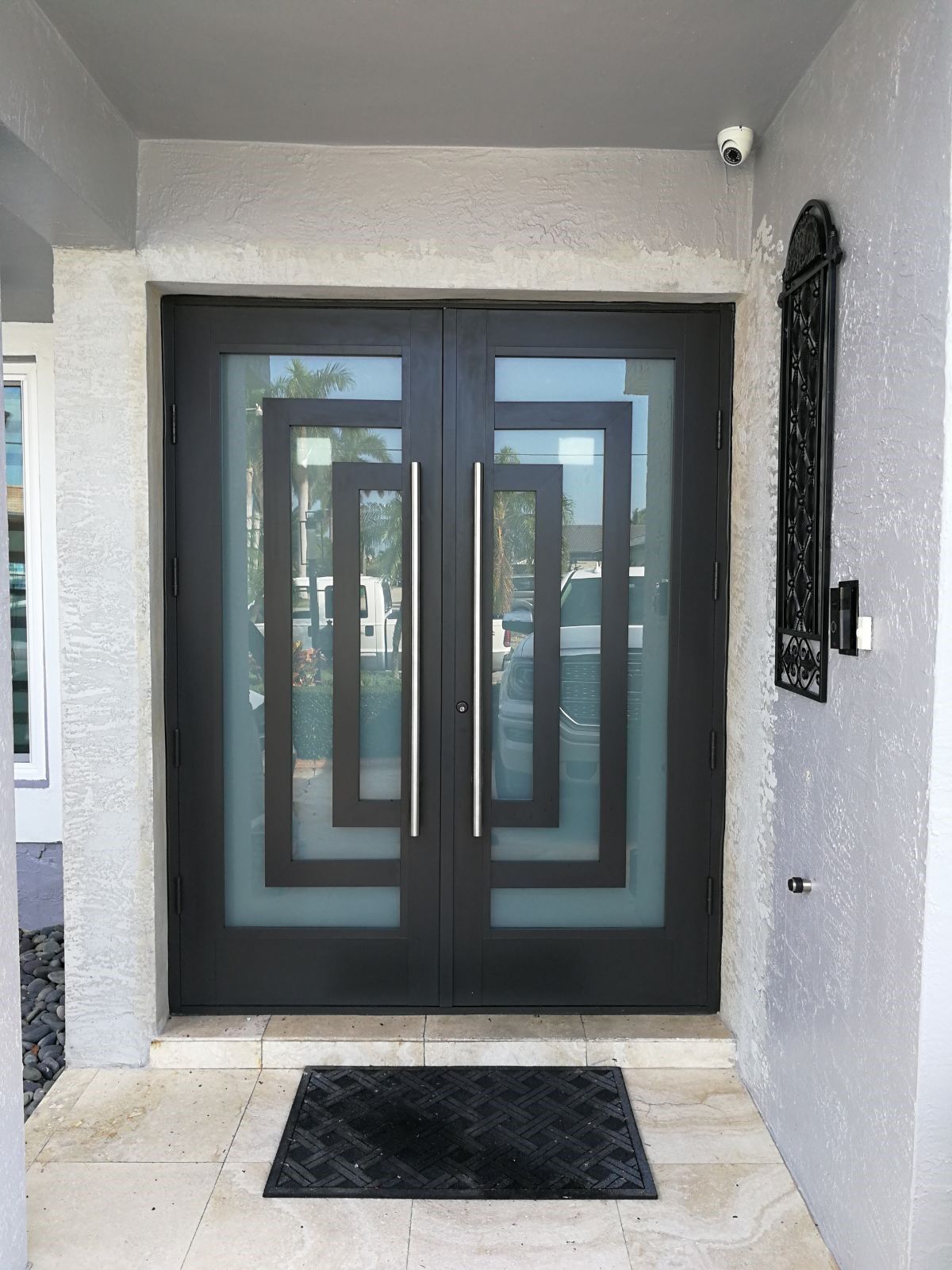
Fiberglass Door
Fiberglass-composite doors are tough and maintenance-free, and are a smart choice for harsh or humid climates like Southwest Florida.
These doors mimic the look of wood with wood-grain texturing and can be stained to match oak, cherry, walnut, and a variety of other woods. Beneath their molded surface is a framework of wooden stiles and rails, including wood edges for the lockset. Voids in the framework are filled with polyurethane-foam insulation.
Fiberglass-composite doors carry long warranties. For example, Pease Industries backs its models for as long as you own the house, but because installation affects longevity, these lengthy warranties usually come only on complete entry systems that include the frame.
Affordability is another plus. Expect to pay about $200 for a 3-foot-wide x 6-foot 8-inch-tall paneled door without glazing or hardware, but because accessories cost the same regardless of the material, a fully loaded fiberglass entry system can cost up to $4,000.
As with steel doors, make sure that the embossed wood-grain pattern runs horizontally on the rails and vertically on the stiles, like real wood grain. And if you’re installing just the door, be sure the hinges line up with the existing frame.
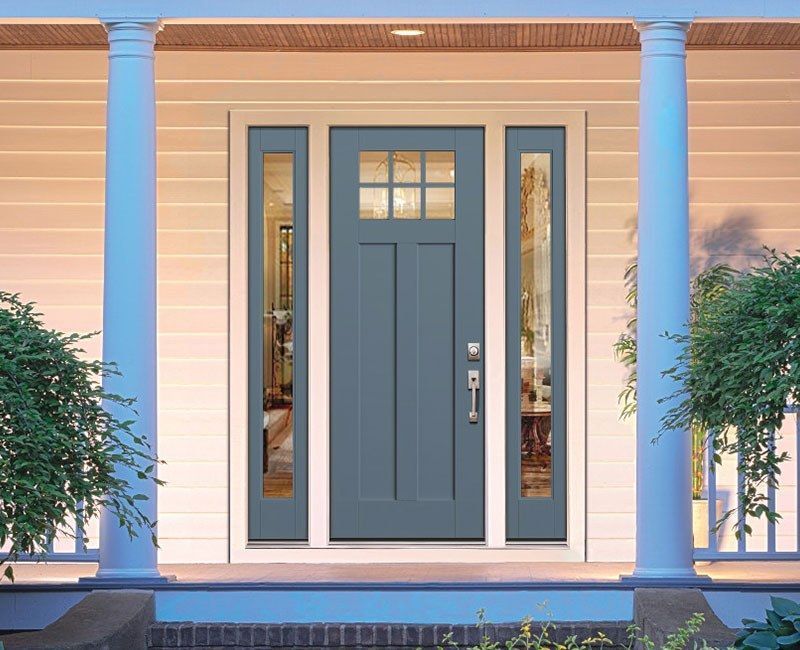
Aluminum Door
Aluminum doors, like steel, use an insulation core covered by a metal skin. Unlike other door systems, however, aluminum versions are sold exclusively through dealers. Each is custom-built to your opening.
Manufacturers offer all types of options. The doors in the Armaclad line from Hess Manufacturing, for example, come in dozens of styles and colors, with smooth or wood-grain finishes.
Aluminum doors have a baked-on enamel finish, so they never need painting and won’t rust — which explains the 20-year warranties that are common. You can also match the color and style of your door with an aluminum storm door. All these benefits don’t come cheap, however. At prices that start at about $600, aluminum doors are the most expensive choice after solid wood.
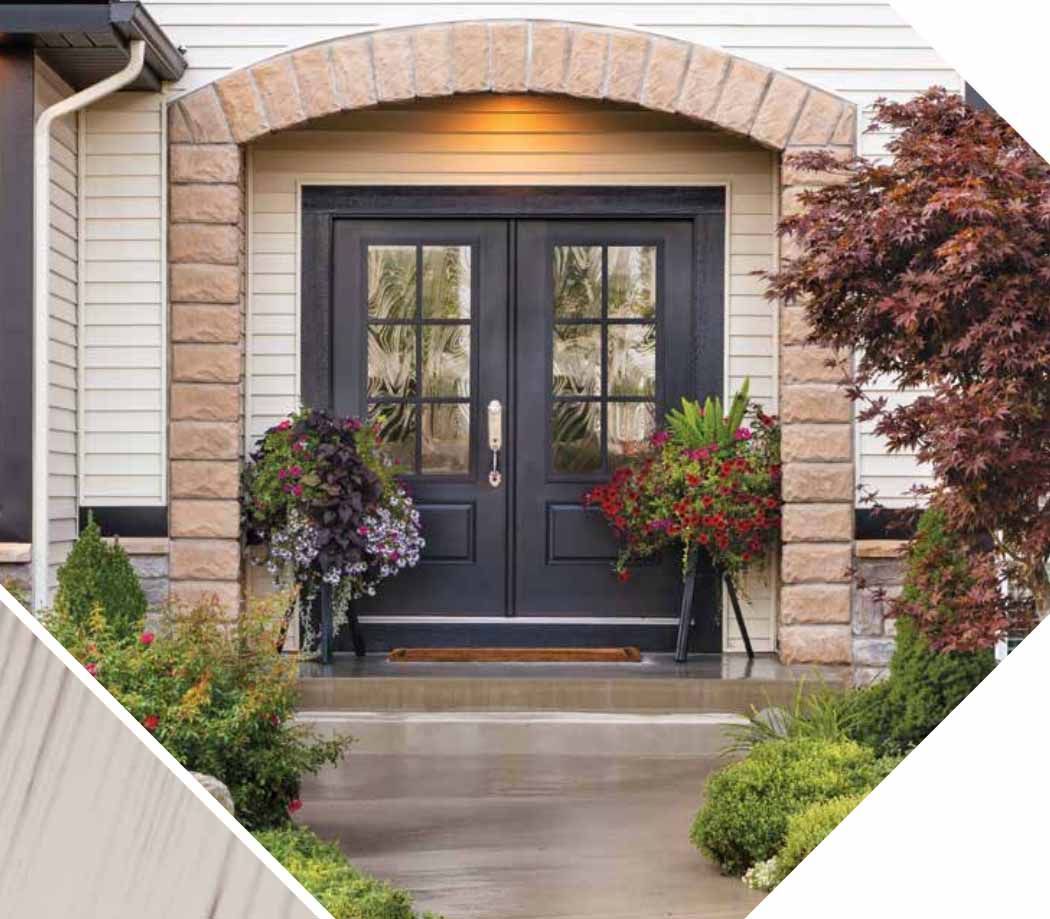
Windows
Choosing Windows
Homeowners should consider several factors when planning for a windows replacement project. Your new window’s functionality, features, and construction play a part in which window option works best. You may also consider energy-efficient framing material, glass types, and Energy Star-certified products to help lower your energy costs. Your selected window brand and project size could also lead to additional savings and rebates.
One of our Project Managers will carefully listen to your needs and present all of the options available to make your plans reality. If you are looking to install windows or seeking windows installation replacement near me in Fort Myers, Cape Coral, Naples, Bonita Springs or Lehigh, we can certainly help!
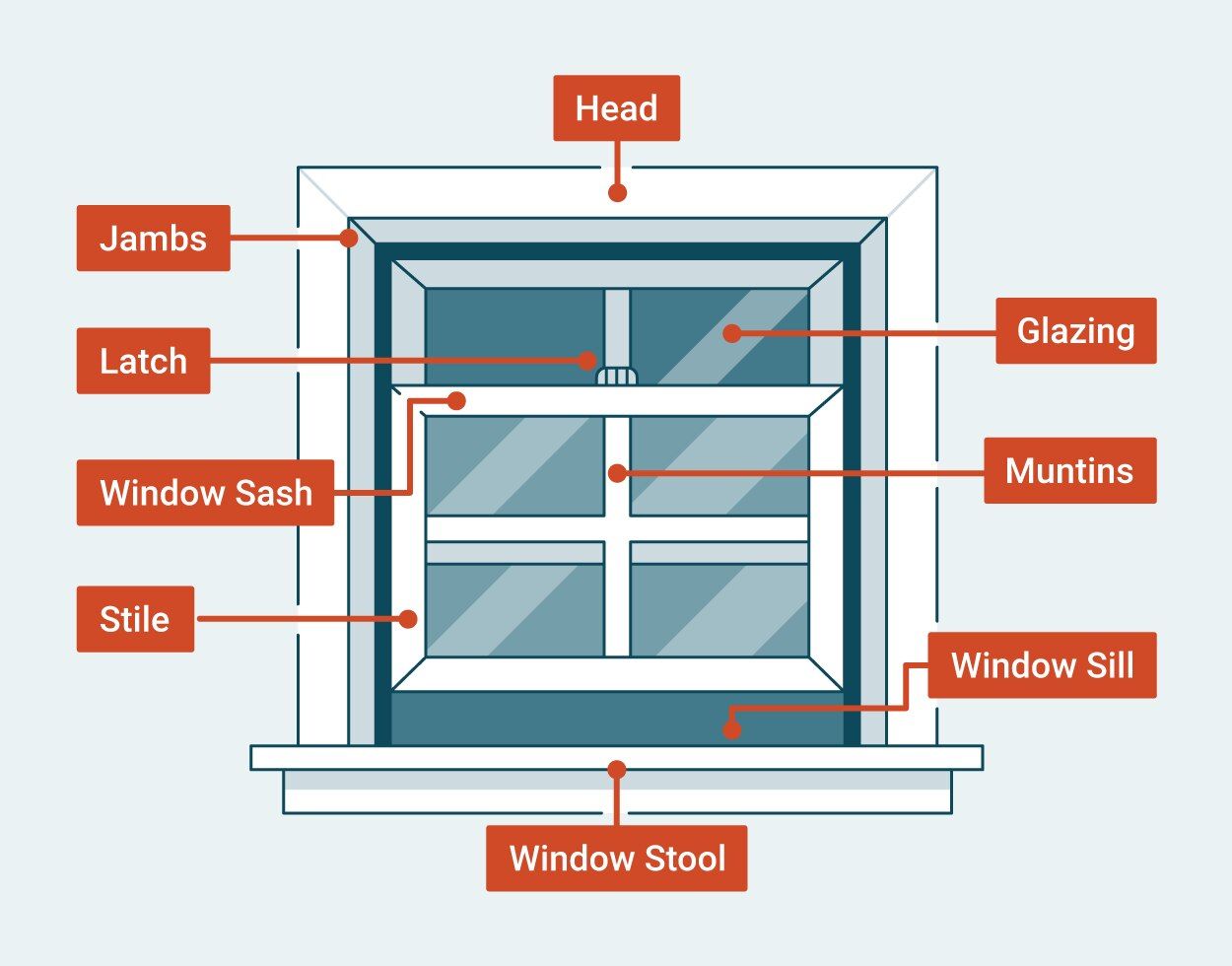
Energy-Efficient Windows
Installing Energy Star-certified windows will improve your home’s energy efficiency and maximize energy savings.
These products are recommended by the U.S. Environmental Protection Agency (EPA) for their energy efficiency. These products are also tested independently by the National Fenestration Rating Council (NFRC), a non-profit organization that grades windows’ insulation and efficiency performance. The NFRC also has a website with exact specs for every window manufacturer.
According to Energy Star, using its certified windows will lower your household energy bills by an average of 12% per year. Upgrading non-certified single-pane windows will save you $101–$583 per year and $27–$197 per year for double-paned.
Energy Star products carry energy performance rating designations, making it easier to select the best options for your home’s needs.
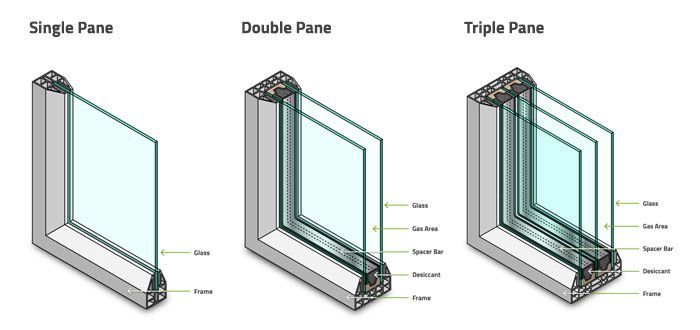
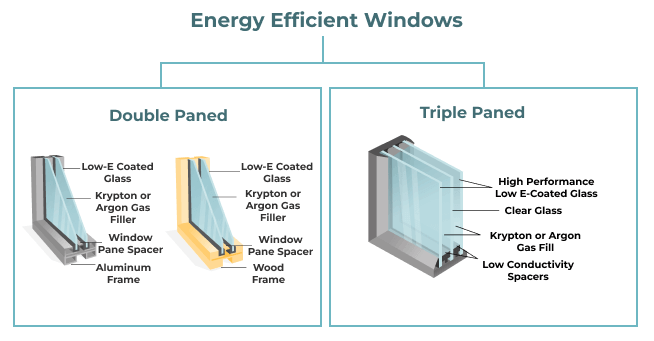
Features of Window Frame Materials
| Feautre | Aluminum | Composite | Fiberglass | Vinyl | Wood |
|---|---|---|---|---|---|
| Average cost (per window) | $700 - $400 | $300 - $1,200 | $500 - $1,500 | $100 - $900 | $150 - $1,500 |
| Resistant to peeling, rot, and bending | X | X | X | X | |
| Resistant to sticking from expansion or contraction | X | X | X | ||
| Paintable | X | X | X | X | |
| Wooden look | X | X | X | X | |
| Energy-efficient | X | X |
Average Cost of Popular Window Brands
| Window Brand | Window Frame Material | Ave. Cost per Window |
|---|---|---|
| Andersen Windows | Aluminum, composite, fiberglass, vinyl, wood | $500–$3,000 |
| Castle Windows | Aluminum, Fiberglass, vinyl | $300–$600 |
| Champion Windows | Aluminum, vinyl | $350–$800 |
| Harvey Windows | Vinyl, wood | $500–$1,350 |
| Jeld-Wen | Aluminum, composite, vinyl, wood | $200–$800 |
| Marvin Windows | Extruded aluminum (cladding only), fiberglass windows, wood | $250–$1,000+ |
| Milgard Windows | Aluminum, fiberglass, vinyl | $300–$600 |
| Pella Windows | Fiberglass, vinyl, wood | $400–$2,000 |
| Renewal by Andersen | Composite | $500–$3,000 |
| Simonton Windows | Vinyl | $200–$450 |
Do your Windows Really Need to be Replaced?
In many cases, you can tell when windows should be replaced. You’ll see signs of worn window frames, cracked panes, or feel air leaks. Other signs, such as elevated noise or higher energy bills, could also indicate a need for new windows.
Below are the most common signs you need to replace your windows:
- Condensation: If you notice water droplets accumulating on the window’s surface or in between the window panes, the seal might be broken.
- Damaged frames: Damaged or decaying frames cause moisture buildup, leading to water damage, rotting, and mold. If the glass is still in great shape, you may be able to replace just the window frame rather than the whole window.
- Difficult to operate: If you have difficulty opening or closing your window, it may be due to improper installation, a warped or rotted window frame, or your home’s foundation settling.
- Drafts: The Department of Energy (DOE) estimates that homeowners could achieve 5%–30% in potential annual energy savings by reducing drafts. Properly sealed new windows will eliminate chilly drafts during winter and expel excess heat and humidity in summer.
- Higher energy bills: Higher monthly utility bills might indicate the need for window replacement. Twenty-four percent of our survey respondents noted unexplained energy cost increases, motivating them to replace their windows.
- Noise infiltration: Old windows struggle to provide adequate sound insulation and absorb external noise. Although some soundproofing window solutions may help reduce the noise, they may only partially resolve the problem if the window is too old or damaged.
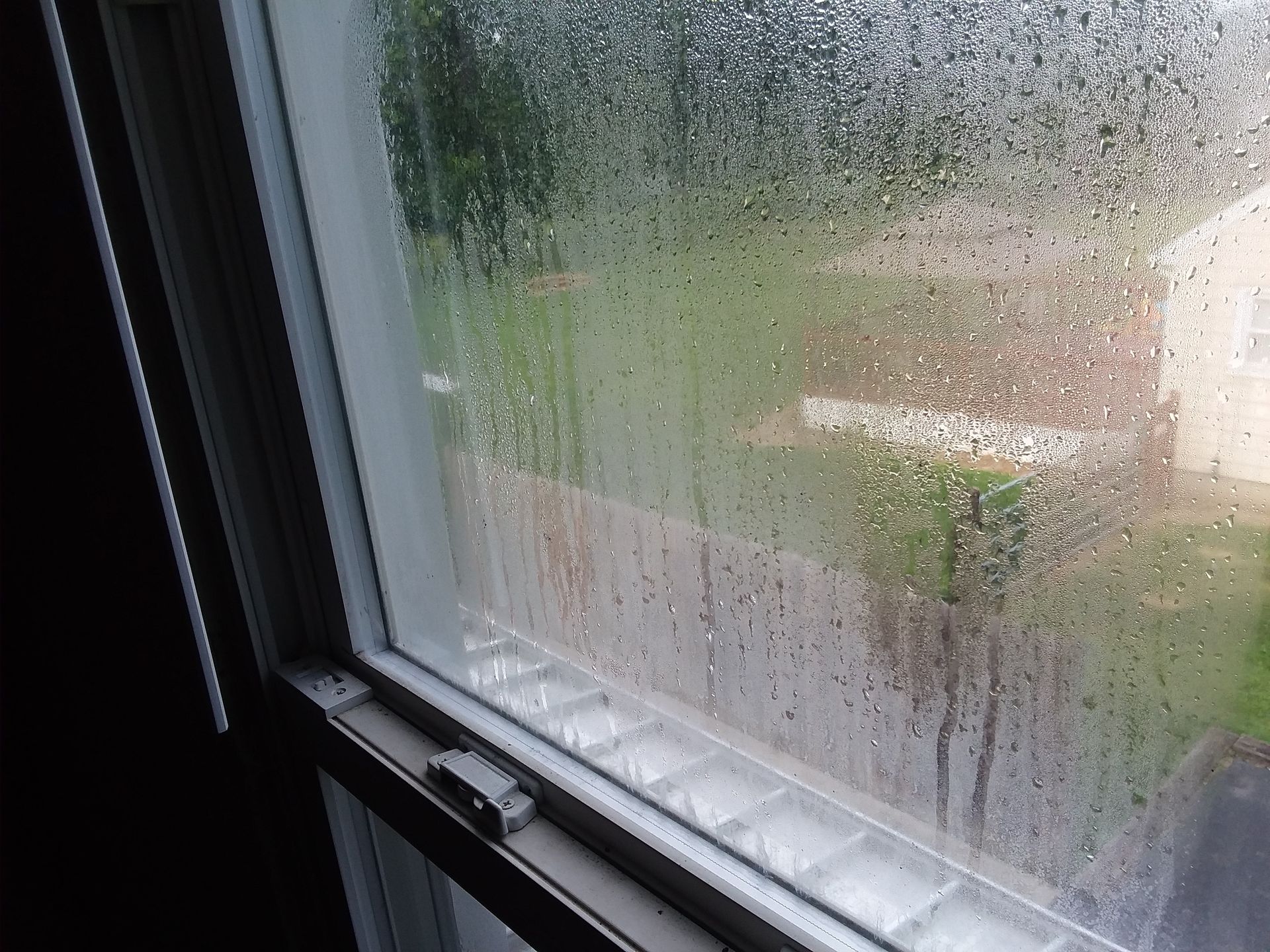
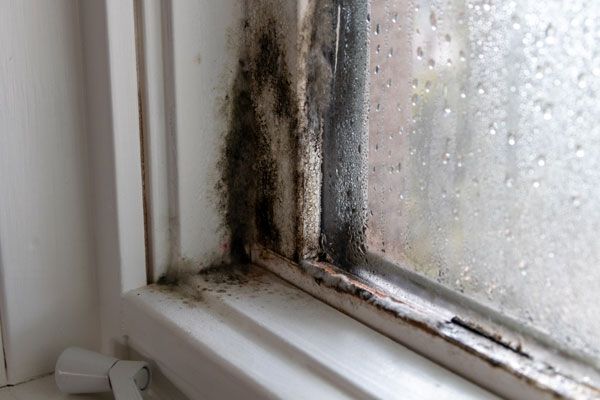
Why Choose Us
- We are experienced in installing all types of doors and windows
- Wood / Fiberglass
- Steel / Aluminum
- Energy Efficient
- All Types of Windows
- Impact Protection
- We are well equipped and have all of the necessary tools.
- We only use top quality materials.
- We are properly licensed and insured to work in Florida.
- We guarantee our work to pass ALL county building inspections!
Let's Work On Your Home!
You can rest assured that SeaCoast has well over 180 years of combined roofing experience, serving Southwest Florida.
We offer high-quality, professional roofing and exteriors services, and stand by our work with a world class workmanship guarantee.
FOLLOW US ON :
Contact Details
Address: We are headquartered in Fort Myers, FL and have an office/yard in Lehigh Acres!
Phone No:
Email:
Site Links
| Copyright SeaCoast Roofing & Exteriors